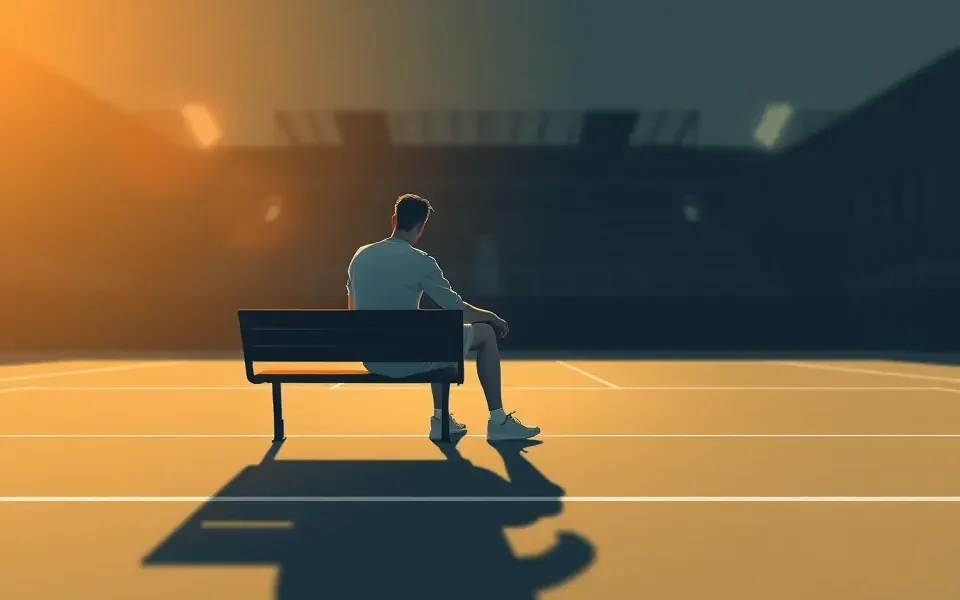Jannik Sinner, the world’s top-ranked tennis player, recently opened up about his experiences and the lessons he’s gleaned during his three-month suspension from the sport. The suspension, a consequence of a settlement with the World Anti-Doping Agency (WADA), stemmed from two positive drug tests in March 2024. Despite the challenging circumstances, Sinner has used this time for introspection and growth, both on and off the court.
The Doping Case: A Recap
In March 2024, Sinner tested positive for Clostebol, an anabolic steroid banned by WADA. The International Tennis Integrity Agency (ITIA) initially accepted Sinner’s explanation that the substance entered his system unintentionally through contamination from a member of his support team. Specifically, the team member had been applying an over-the-counter spray containing Clostebol to treat a wound and unknowingly transferred the substance to Sinner during massages.
While the ITIA initially cleared Sinner of wrongdoing, WADA appealed the decision to the Court of Arbitration for Sport (CAS), seeking a longer ban. To avoid a protracted legal battle and potential suspension of up to two years, Sinner reached a settlement with WADA, accepting a three-month ban. The suspension ran from February 9 to May 4, 2025, making him eligible to return to competition just in time for the Italian Open in Rome.
Sinner’s Perspective: Accepting Responsibility
Despite maintaining his innocence and asserting that he gained no competitive advantage from the Clostebol, Sinner acknowledged his responsibility for the actions of his team. In a statement released following the settlement, Sinner stated: “I have always accepted that I am responsible for my team and realize WADA’s strict rules are an important protection for the sport I love. On that basis, I have accepted WADA’s offer to resolve these proceedings on the basis of a 3-month sanction.”
The Emotional Toll: Fragility and Reflection
Sinner admitted that the doping case and subsequent suspension took an emotional toll. “I was very fragile after what happened,” he confessed. “I would tell a lie if I said I was a person without feelings or emotions. In life you learn, every year I learn more about myself, also about my value.”
He further elaborated that the decision to accept the three-month suspension was not easy, stating that it was taken quickly, even though he “didn’t agree completely”. There was a bit of back and forth with my lawyer and the people around me,”
The Guardian noted that the suspension, while halting his momentum, would allow for some recovery off the court after an intense period of play, meaning the likelihood is that when Sinner returns, he will be in top form.
Lessons Learned: A Deeper Understanding
Sinner emphasized that he has learned valuable lessons during this challenging period. While he did not explicitly detail all the lessons, his comments suggest a deeper understanding of several key aspects:
Responsibility and Team Management
The case reinforced the importance of athletes being responsible for their support teams. Sinner’s experience highlights the need for athletes to ensure that all members of their team are aware of and adhere to anti-doping regulations. This includes carefully vetting products used by team members and implementing strict protocols to prevent contamination.
Navigating the System
Sinner’s case exposed the complexities and potential unfairness of the anti-doping system. Despite being cleared of intentional wrongdoing by the ITIA, WADA’s appeal and the threat of a lengthy ban forced Sinner to accept a suspension to protect his career. This experience likely provided him with a greater understanding of the legal and political aspects of professional sports.
Resilience and Mental Fortitude
The suspension undoubtedly tested Sinner’s resilience and mental fortitude. Dealing with the accusations, legal proceedings, and public scrutiny required immense mental strength. His ability to accept the situation, learn from it, and maintain a positive outlook demonstrates his maturity and mental toughness.
Perspective and Values
Sinner’s reflections suggest that the suspension provided him with a valuable opportunity to reassess his priorities and values. He spoke of learning more about himself and his value, indicating a deeper understanding of what is truly important to him. This introspection could lead to a more balanced and fulfilling career in the long run.
McEnroe’s Support
Tennis legend John McEnroe voiced his support for Sinner, criticizing the decision to suspend him. McEnroe argued that Sinner had gone through the proper protocols and should be considered innocent. He deemed the argument that other players were treated badly, and therefore Sinner should be treated badly, as absurd.
Looking Ahead: Eager to Return
Despite the challenges of the past few months, Sinner remains eager to return to competitive tennis. He expressed his excitement to play in the Italian Open in Rome, a special tournament for him. He is still counting down the time to his return to competitive tennis, stating that, “Why? Because I stopped doing what I always dreamed of doing. I am in the best position to play this sport,”
Sinner’s suspension is set to end on May 4, 2025, making him eligible to compete in the Italian Open, which begins on May 7.
A Controversial Suspension
The short duration of Sinner’s suspension generated controversy, as it allowed him to avoid missing any Grand Slam tournaments. Some observers criticized the settlement, arguing that it was too lenient and sent the wrong message about doping in sports. Others defended the decision, citing the lack of evidence of intentional wrongdoing and the potential for a long and costly legal battle.
The Impact on Sinner’s Career
The suspension undoubtedly disrupted Sinner’s momentum after his impressive victory at the Australian Open in January 2025. However, the time off may also have provided him with an opportunity to rest and recover, both physically and mentally. Whether the suspension ultimately has a positive or negative impact on his career remains to be seen, but his response and performance upon his return will be closely watched.
Conclusion
Jannik Sinner’s three-month suspension was a challenging experience that forced him to confront issues of responsibility, accountability, and resilience. While the circumstances surrounding the suspension were controversial, Sinner appears to have used the time wisely, learning valuable lessons and gaining a deeper understanding of himself and the sport he loves. As he prepares to return to competitive tennis, he will undoubtedly draw upon these experiences to fuel his ambition and strive for continued success.








No Comment! Be the first one.